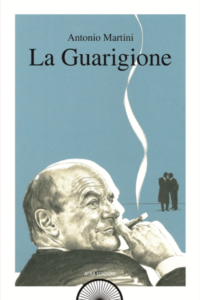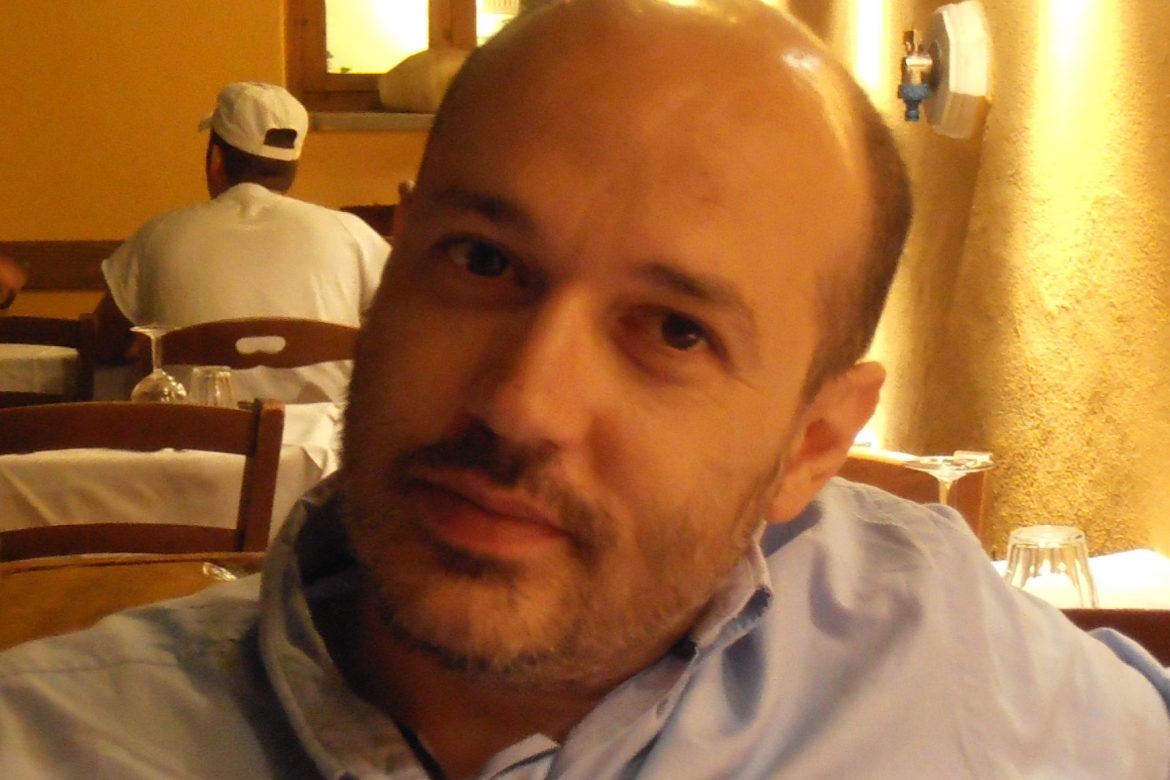 Antonio Martini was born on April 30, 1973, in Montecilfone – a town with Albanian origins which can be found in the region of Molise. In 1992, he moved to Padua to study Law and it is right here that he developed a true passion for journalism and politics, a passion that caused him to delay his degree and that eventually turned into a job. He works for two newspapers: Padova Magazine and Nuova Società. In Padua, he also works for the local administration – he started with political communication and now he is the press agent responsible for institutional communication. He edited a book about a well-known, democrat, Paduan politician – “Il compagno Mario Zaggia” (ed. Esedra edizioni) – and he is the co-author of two documentaries: “Mondo Camion” and “Un’altra storia”. He is a true bookworm, especially when it comes to contemporary literature; he loves debut novels and does not quite like the classics. He wrote two short novels (which can as well as be considered two long stories): a thriller and a bildungsroman which he would like to see published sooner or later.
Antonio Martini was born on April 30, 1973, in Montecilfone – a town with Albanian origins which can be found in the region of Molise. In 1992, he moved to Padua to study Law and it is right here that he developed a true passion for journalism and politics, a passion that caused him to delay his degree and that eventually turned into a job. He works for two newspapers: Padova Magazine and Nuova Società. In Padua, he also works for the local administration – he started with political communication and now he is the press agent responsible for institutional communication. He edited a book about a well-known, democrat, Paduan politician – “Il compagno Mario Zaggia” (ed. Esedra edizioni) – and he is the co-author of two documentaries: “Mondo Camion” and “Un’altra storia”. He is a true bookworm, especially when it comes to contemporary literature; he loves debut novels and does not quite like the classics. He wrote two short novels (which can as well as be considered two long stories): a thriller and a bildungsroman which he would like to see published sooner or later.
On September 2015, he published “La Guarigione” with Alba edizioni.
La Guarigione (The Healing)
 An Italian politician falls right when he is about to reach the top of his career. First, he loses elections that he was sure to win, then – only a few months later – he almost dies. His illness changes his point of view, but also the one his family has and those of his two former colleagues, which are completely different since one is still grieving for the unforeseen failure, while the other has already come to terms with what happened.
An Italian politician falls right when he is about to reach the top of his career. First, he loses elections that he was sure to win, then – only a few months later – he almost dies. His illness changes his point of view, but also the one his family has and those of his two former colleagues, which are completely different since one is still grieving for the unforeseen failure, while the other has already come to terms with what happened.
The recovery of the Old Secretary makes us all reflect. In the background, we see the consequences of the liberal party’s decadence in our country and the brutality of the new path. The deterioration of a ruling class, and somehow of an entire generation, has severe consequences on part of the following generation.
It is a story about a dying world. The true facts it takes inspiration from can be considered emblematic – a story in which defeat and illness overlap. How abrupt is the fall from the doorway of Palazzo Chigi to an operating room you enter without certainties about the future? How do the inhabitants of the old world live on the margins of the new one?
The analysis at the end of the book is written by Chiara Geloni, former director of YouDem.
Gad Lerner wrote a review in Italian for this book, and you can find it here.


